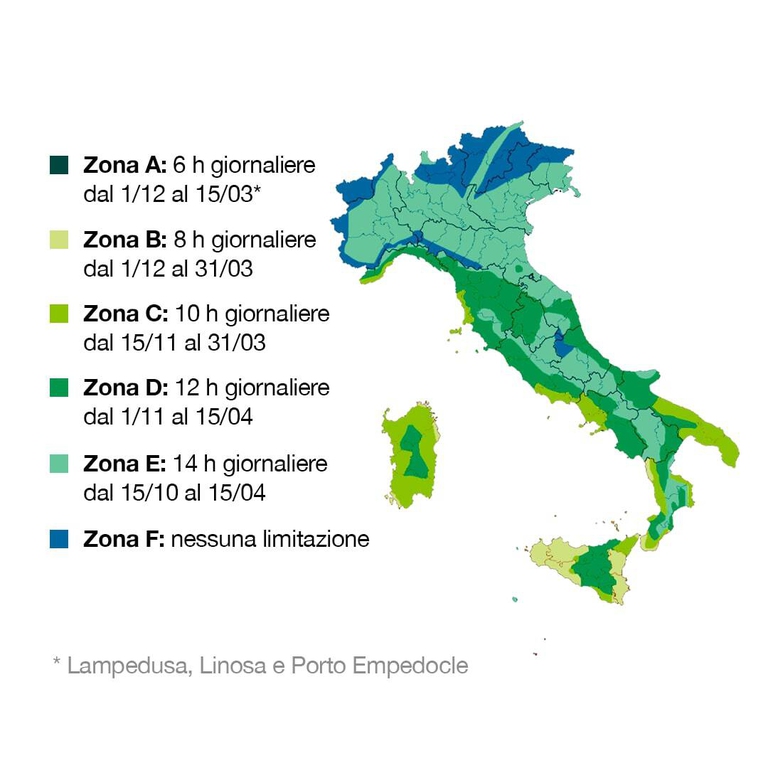https://www.lifegate.it/riscaldamenti-2024-pompe-di-calore
- |
The weather situation in Italy has changed radically in recent weeks.The rain of the last few days has forced Italians to quickly change clothes in the wardrobe to cover themselves more.And the question immediately arose, When can the heating be turned on? The answer is: It depends on where you live.In stages, from 15 October to 1 December, heating can be turned on throughout Italy.But let's see the precise dates, from one climate zone to another.

What the regulations say about heating
In our country the use of heating is subject to a decree of the President of the Republic of 2013 which regulates the period of operation and the daily duration of switching on of heating systems based on the climate zone of reference.In Italy there are six climate zones established on the basis of what was the average temperature of the period.In the north, where it is (or was) colder, the switching periods are longer and there are certain geographical areas, such as the Alpine areas, which have heating systems active all year round.Condominiums, then, have their own rules regarding heating systems set by the condominium assembly.It is therefore not possible for the individual condominium owner to turn on the heating without first notifying the administrator.This does not apply if you live in a detached house.By law, then, houses heated by radiators must have a maximum temperature set of 19 degrees Celsius, with a tolerance of two degrees, but municipalities can provide exceptions to this rule.In any case, there are even heavy fines for those who do not respect the limits. The European directive on energy efficiency in buildings specifies that the penalties for violators range from 500 up to 3,000 euros.
The health risks
Such a complex and articulated regulatory regime responds to the need to regulate polluting emissions produced by the systems by precisely defining the hours and duration of ignition to minimize the impacts on the environment and on the air we breathe.A 2021 study by the consulting firm Elements highlighted that in Italy domestic heating is responsible for 17.7 percent of total CO2 emissions and also contributes significantly to the production of fine dust, which is harmful to our health.This is a consequence of the fact that in Italy the majority of houses are still heated with fossil fuels.The European Union approved the green homes directive also to counter this phenomenon.The law provides that from 2030 new buildings constructed must be zero-emission and prohibits incentives for the purchase of gas boilers as early as next year.
“It's about an important step from an environmental and social point of view,” he commented last April Mimmo Fontana, urban regeneration manager of Legambiente.“The energy efficiency of real estate assets can concretely contribute to the reduction of greenhouse gas emissions and we must first start by planning renovation interventions on the most energy-intensive units”
The Nordic countries model
To find a model to take as an example, we must, as often happens, look to Northern Europe.In Norway, Sweden and Finland they have adopted a less polluting heating system compared to traditional systems powered by methane (or worse, diesel).It involves extracting the heat from underground and transferring it inside the home:they are the heat pumps.According to research by Regulatory assistance project (Rap) these three countries have the highest concentration of these devices in Europe per thousand inhabitants. È It is therefore interesting to observe how some of the coldest countries in the world have adopted less polluting heating systems than Italy or countries where heating is certainly less necessary (and therefore, potentially, less polluting).To date the Italian market is the second in Europe in terms of heat pump sales, but it goes down to seventh place if you look at the concentration per thousand inhabitants.We currently need solid incentives that stimulate demand and lower costs.We must aim for solutions such as heat pumps if we want to save ourselves from the cold without destroying the environment in which we live.
